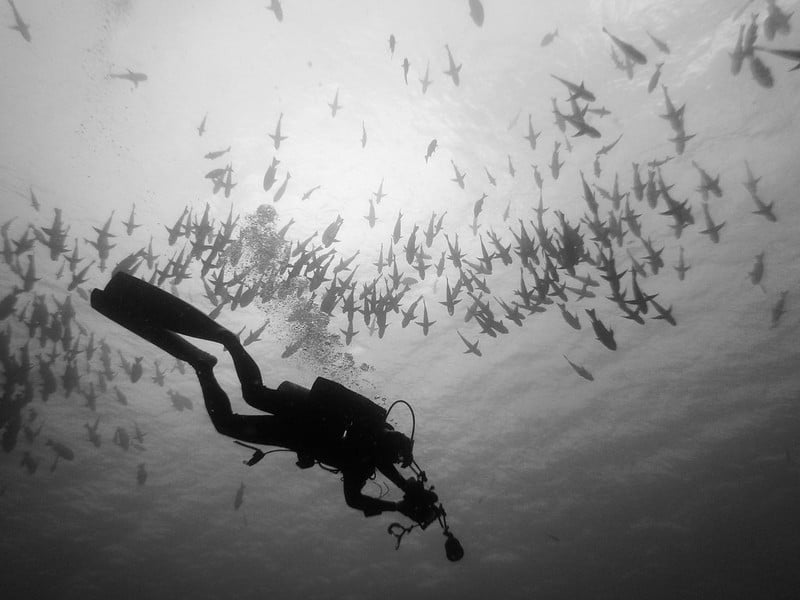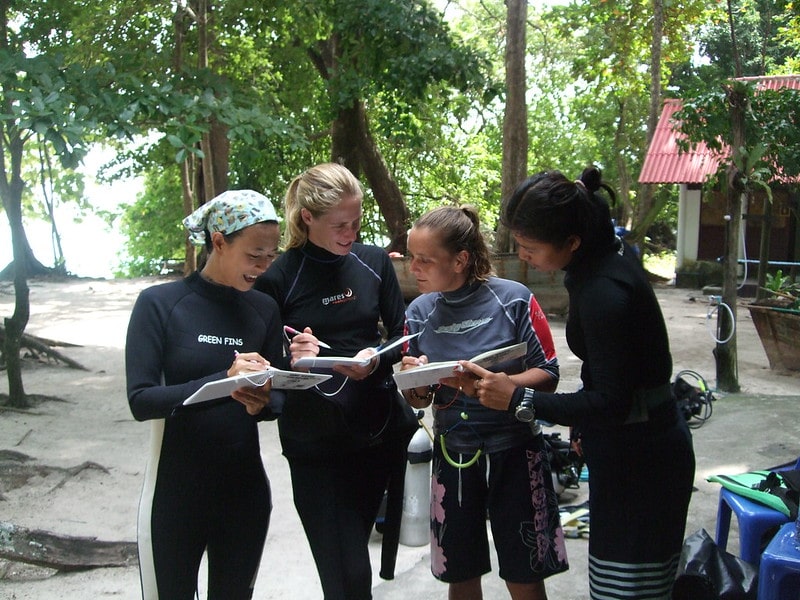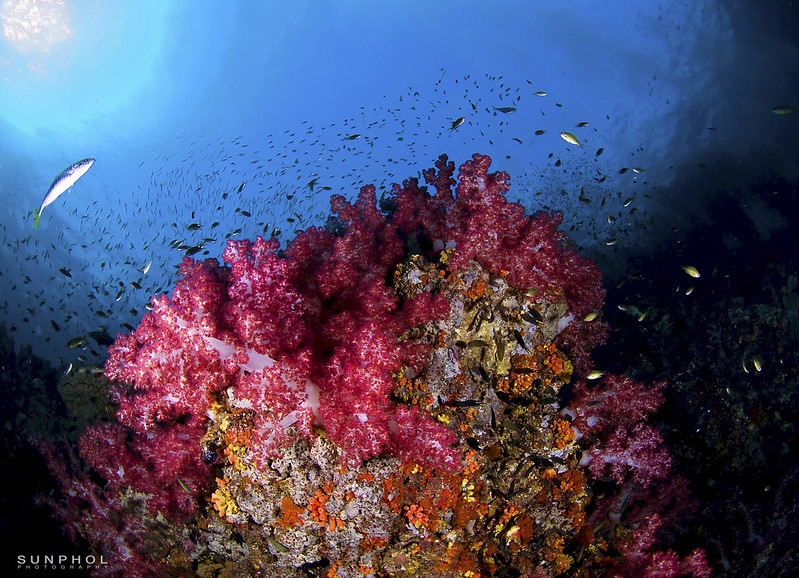Marine Life & Conservation
Green Fins Global Hub development to boost industry protection of reefs
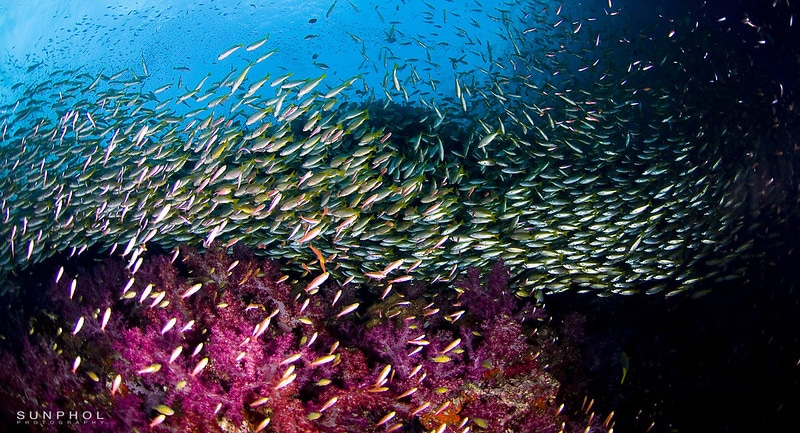
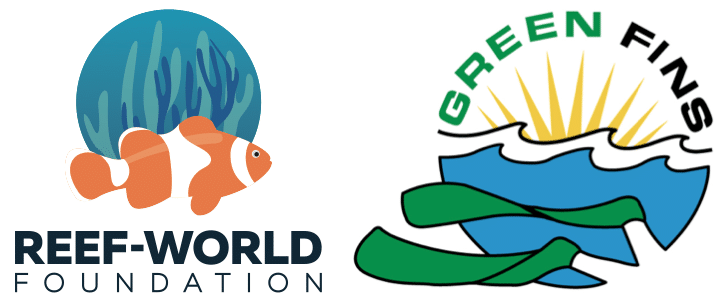 Reef-World has been shortlisted as a finalist in 2020’s Con X Tech Prize to help develop this digital sustainability solution
Reef-World has been shortlisted as a finalist in 2020’s Con X Tech Prize to help develop this digital sustainability solution
The Reef-World Foundation – the international coordinator of Green Fins in partnership with the UN Environment Programme – has announced it has officially been shortlisted as a finalist in the 2020 Con X Tech Prize.
The Con X Tech Prize provides opportunities for seed funding to anyone, anywhere to turn their bold new ideas for conservation into reality. The current round of the Con X Tech Prize attracted 167 submissions from around the world – including Uganda, Malaysia, Cameroon, the Philippines, Brazil, & more – and Reef-World has been named as one of the 20 finalists with the potential for exponential conservation impact. The Grand Prize Winner will be announced by Conservation X Labs after finalists complete a 12-week prototyping period.
Reef-World’s entry is the development of The Green Fins Global Hub: a digital global solution to help dive professionals protect fragile coral reefs. This first-of-its-kind online support system will motivate marine tourism operators to improve their everyday environmental practices. This product will leverage innovation to meet increasing consumer demand for sustainable tourism practices by empowering tourism organisations to minimise environmental impacts associated with their business and protect their natural assets.
Harnessing Reef-World’s 20+ years’ grassroots experience in environmental behaviour change, the Hub allows Reef-World to upscale its conservation impact by moving the proven Green Fins tools online. This will significantly boost knowledge and capacity for improved sustainability worldwide. This project has immediate potential to upscale globally: digitising Green Fins’ offering overcomes traditional capacity and time constraints. In this way, it allows Reef-World to reach previously inaccessible operators and help them take the first steps on their sustainability journey. Going digital in this way opens up an opportunity to reach 30,000 dive and snorkel operators across 100 coral reef countries. This means Reef-World can educate and empower over 48,000 guides and building sustainability into the trips of the 171 million tourists who visit coral reef sites each year. The potential cumulative impact of this on global coral reef health is significant.
This project creates a tipping point for sustainable reef tourism by helping the industry identify pressing environmental threats and providing proven solutions, such as responsible waste management measures. Complementing Green Fins’ proven conservation approach, the Hub will boost reef resilience by empowering people in biodiversity hotspots worldwide to alleviate local threats.
Tourism operators’ owners, managers, staff and crew will directly engage with the Hub for access to robust, evidence-based sustainability practices. Following online registration and self-evaluation, they will receive proven solutions for their highest environmental threats, continued access to implementation action plans, tools and resources and user forums for support and encouragement. Data captured from self-evaluations, access to solutions, tools to address threats and on-site verification assessments will also inform where strengthened policy and regulation can have the greatest impact.
The resultant measurable reduction of local threats to coral gives reefs a better chance of surviving mounting global threats. Reef resilience is a growing marine ecosystems conservation approach focusing on alleviating local threats, allowing them to be healthier, more robust & resilient to climate change impacts. Green Fins is a proven conservation approach that works in line with resilience-based management by reducing coastal ecosystems threats posed by marine tourism. It is traditionally implemented by trained government teams conducting on site environmental assessments and training. Already active in 11 countries, demand for Green Fins participation globally greatly exceeds current capacity & complementing on-the-ground activity with a novel, digital approach is required to achieve conservation impact scale.
Reef-World has already completed in-depth market research and prepared a business plan, product requirement document and sustainable finance model. By the end of the 12-week prototyping period, the charity will have: drafted a design specification document; mapped out the evaluation and onboarding processes for members; developed wireframes for the onboarding process and key sections of the system; designed a visual mock-up of the user interface; and begun collaborating with software development agencies to ensure all outputs are realistic and achievable.
James Greenhalgh, Digital Strategy Manager at The Reef-World Foundation, said: “We’re proud to have been shortlisted alongside these impressive conservation innovations. There is no other product like the Global Hub on the market and our market research shows strong industry demand for a service providing this type of solution. The Hub will enable operators to train and empower their staff to adopt better environmental behaviours and collaborate with other businesses. We’re excited about the project’s potential to benefit reefs globally!”
Tom Quigley, Community Manager at Conservation X Labs, said: “The Con X Tech Prize is meant for opportunities just like this – where some funding and support through a prototyping sprint can help a product like Green Fins make a transformative leap in the scale of their impact. We’re excited to see what Reef-World builds over the prototyping period!”
Each of the 20 shortlisted teams have received $3,500 to turn their idea into a prototype over 12-weeks. At the end of the prototyping period, one project will be awarded the $20,000 grand prize to support the future of their project.
Reef-World has already secured funding for this project from the United Nations Environment Programme, The Matthew Good Foundation, and G-Research and is continuing to fundraise to cover the remaining development costs.
The Reef-World Foundation is a registered UK charity which delivers practical solutions for marine conservation around the world. Its flagship initiative, Green Fins, is implemented in partnership with the UN Environment Programme (UNEP). This proven, established approach focuses on driving environmentally friendly scuba diving and snorkelling practices across the industry globally. By driving compliance to marine tourism environmental standards, Green Fins helps to reduce local threats to coral reefs in popular tourism destinations. It unites tourism organisations, governments and operators to preserve natural resources by implementing proven sustainability measures.
To see the full list of 20 finalists please click here.
Marine Life & Conservation
Paul Watson Released as Denmark Blocks Japan’s Extradition Bid

Renowned anti-whaling activist Paul Watson has been released from custody in Greenland after spending five months in detention. Denmark’s Justice Ministry rejected Japan’s request for his extradition, citing insufficient guarantees that his time already served in custody would be credited against any potential sentence.
The 74-year-old Canadian-American was arrested on July 21 in Nuuk, Greenland’s capital, when his ship docked to refuel. His arrest was based on a 2012 Japanese warrant related to a 2010 encounter in Antarctic waters. Japan alleged Watson obstructed operations and caused damage to a whaling research ship during efforts to disrupt illegal whaling. Watson has consistently denied these claims, maintaining his commitment to marine conservation.
Denmark, which oversees extradition matters for Greenland, concluded that while the legal conditions for extradition were met, the lack of assurances from Japan regarding time-served credit made extradition untenable.
In a video shared by his foundation, Watson expressed gratitude and relief, saying, “After five months, it’s good to be out… and good to know they’re not sending me to Japan.” He added that the most difficult part of his time in custody was being separated from his two young sons.
Watson is a pioneering figure in marine conservation, known for founding the Captain Paul Watson Foundation in 2022 after decades of activism with the Sea Shepherd Conservation Society. His bold efforts to defend marine life have earned him widespread support, including from celebrities and conservationists. His work has also been featured in the acclaimed reality TV series Whale Wars.
Watson’s lawyer, Jonas Christoffersen, praised the decision, stating, “We are happy and relieved that Paul Watson is now free.” He added that Watson is eager to reunite with his family and continue his vital work.
The arrest occurred while Watson’s vessel, the M/Y John Paul DeJoria, was en route to the North Pacific with a team of 26 volunteers to intercept a Japanese whaling ship. His foundation described the arrest as politically motivated and emphasized that Watson’s actions were focused on ending illegal whaling practices.
Japan resumed commercial whaling in 2019 after leaving the International Whaling Commission, asserting that whale meat is a cultural tradition. Conservationists, however, continue to challenge these practices, highlighting their impact on marine ecosystems.
Despite the challenges, Watson remains steadfast in his mission to protect marine life and bring attention to whaling practices. His dedication to ocean conservation has made him a globally respected advocate for the environment.
Marine Life & Conservation
12 Days of Zero-Waste Fish-mas

This holiday period, the Marine Conservation Society, the UK’s leading ocean membership charity, invites you to make some simple changes to eating fish this Christmas to help our seas.
Dr Kenneth Bodles, Head of Fisheries and Aquaculture at the Marine Conservation Society, said, “During the festive season, our consumption increases, but so does waste. Sustainability isn’t just about where food comes from – it’s also about how you use it. By reducing waste and making the most out of your seafood, you’re not only taking steps to be more ocean-friendly, but can also help to cut costs during what is often one of the most expensive times of the year”.
The Marine Conservation Society has compiled twelve tips on how to consume seafood sustainably with zero-waste this Christmas:
Buy whole fish instead of fillets
Instead of fillets, consider buying whole fish such as salmon, hake, or lemon sole. By adopting a “nose to tail” approach with cooking, whole-baked fish not only feeds a crowd, but also helps to minimise waste and maximise sustainability by using up every part of the animal, including bones, skin, and fat.
Make fish stock
Leftover fish bones or shells can be put to good use by boiling them to make a nourishing fish stock or bisque. This can be frozen and preserved for later use and makes for a flavourful base in a soup.
Make your own fish pâté
Avoid waste by turning leftover fish, such as smoked mackerel or salmon, into a delicious pâté by blending with cream cheese and lemon. Perfect when paired with crackers.
The sustainability of salmon and mackerel varies depending on where and how it is caught or farmed. For more information on green-rated options, check the charity’s Good Fish Guide.
Buy frozen
By purchasing seafood that is frozen or vacuum-packed, this helps to reduce waste by extending the shelf life of your food.
Fish pie
If you’re wondering what to do with leftover cooked fish, why not opt for a classic fish pie with mashed potatoes, leeks, and a cheesy sauce? A sure crowd pleaser on Boxing Day.
Use the head
Don’t forget the fish head! The meat is incredibly tender and flavourful. The charity recommends a cod’s head curry or recreating Fallow’s renowned cod’s head in siracha butter.
By stretching your ingredients further, not only is this a more sustainable way to enjoy seafood, but also cost-effective by repurposing leftovers and cooking creatively.
Boxing Day brunch
Mix leftover kippers or smoked salmon with scrambled eggs for a tasty, zero-waste, Boxing Day brunch.
For best choice, make sure you buy kippers, or herring, from the North Sea and the North Irish Sea.
Zero-waste storage
A top tip from the Marine Conservation Society to avoid waste is freezing fish offcuts to save for future use.
Crisp up the skin
Even leftover fish skin can be turned into a quick savoury snack by crisping it up in an air fryer with a little olive oil and salt.
Anchovies two ways
Leftover anchovies can either be blended with butter to make a delicious anchovy butter or tossed into pasta for a hit of umami flavour.
The charity recommends opting for anchovies caught in the Bay of Biscay for best choice.
Fishcakes
For an easy, zero-waste meal, leftover seafood trimmings can be mixed with mash and fried in breadcrumbs to make fishcakes.
Pickled mussels
Try pickling mussels in 1:1 vinegar and water, with a dash of sugar for a sustainable, zero-waste snack that can be enjoyed well beyond the festive season.
Mussels farmed in the UK are a seafood superhero. Grown using low-impact methods and harvested by hand, they get all the food they need from the sea around them. This makes them one of the most sustainable, ocean-friendly, and cost-effective seafood options.
Players of People’s Postcode Lottery have raised £6.6M towards the Marine Conservation Society’s vital work in making seafood more sustainable.
Laura Chow, Head of Charities at People’s Postcode Lottery, said: “Fish is a festive favourite for many, but making sustainable choices when it comes to how we buy and eat seafood makes all the difference for our ocean. Support from players of People’s Postcode Lottery has helped the Marine Conservation Society further its sustainable seafood work, so that we can all enjoy healthier, better protected seas.”
The Marine Conservation Society encourages you to make sustainable seafood choices a year-round habit, not just for Christmas. To check how sustainable the seafood on your plate is, you can visit the charity’s Good Fish Guide. The Guide helps consumers and businesses identify the most sustainable seafood using a simple traffic light system, based on where and how species are caught or farmed. Green is the best choice, amber means improvements are needed, and red indicates fish to avoid buying.
Zero-waste gift idea
Why not embrace a zero-waste Christmas by gifting a membership to support marine conservation? It’s a meaningful, low-waste gift that helps protect our ocean for generations to come. Memberships start from as little as £5 a month – the price of a sandwich and drink from your local coffee shop.
Find the latest sustainable seafood advice for wild-caught and farmed seafood on the Good Fish Guide, downloadable to your phone from www.mcsuk.org/goodfishguide.
-

 News2 months ago
News2 months agoIconic SS United States to become the World’s Largest Artificial Reef
-

 News3 months ago
News3 months agoBook Review – 52 Assignments: Underwater Photography
-

 Gear News3 months ago
Gear News3 months agoDYNAMICNORD – New German diving brand enters the British market
-

 News3 months ago
News3 months agoExploring Cenote El Pit: A Diver’s Dream
-

 Gear News3 months ago
Gear News3 months agoTry BARE drysuits (and maybe even win one!) this Friday with Sea & Sea at North West Dive Fest
-

 Marine Life & Conservation3 months ago
Marine Life & Conservation3 months agoBook Review: Coral Triangle Cameos
-

 Blogs2 months ago
Blogs2 months agoDive the Egyptian Red Sea this Autumn with Regaldive
-

 News3 months ago
News3 months ago2024 Ocean Art Underwater Photo Competition Announced


